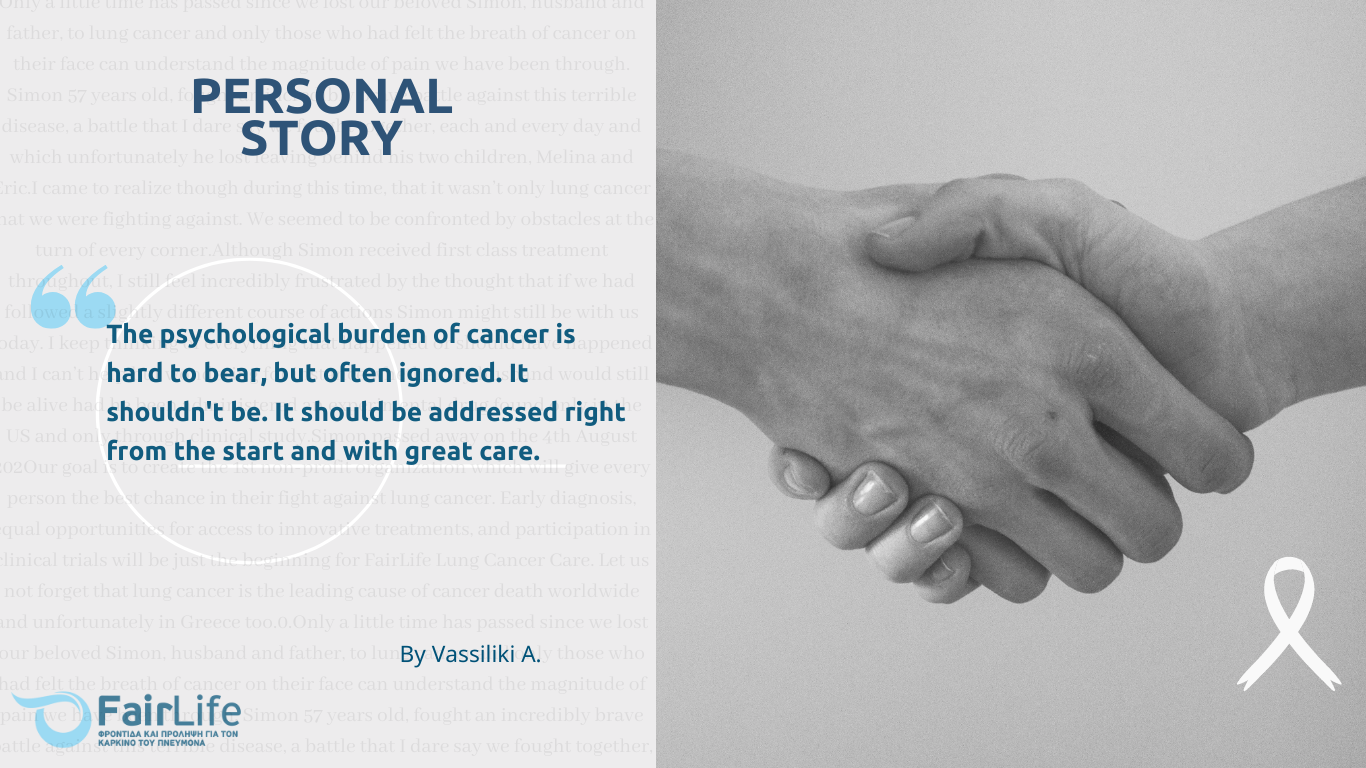
The emotional burden of cancer is hard to bear, but often ignored.
By Vassiliki A., Caregiver
Our lung cancer journey started quite unexpectedly. My 64-year-old husband needed a CT scan to check for thrombosis, caused by a bump. The results revealed adenocarcinoma and doctors recommended a chemo treatment plan in Greece. Eventually, my husband, who had no related symptoms before diagnosis, was operated in April 2019, in Cyprus, by an excellent doctor, who is currently back Greece and still treats him.
I would like to mention the excellent communication we had with our doctor. He was always available and willing to inform us, explain and solve all our questions, throughout the lung cancer journey. In 2020, my husband received radiotherapy, chemotherapy as well as immunotherapy to treat brain metastasis, developed by then. The disease is currently inactive and he is still being monitored. Our family balance has naturally been disrupted. My husband hated the idea of chemotherapy. His emotional attitude towards the disease has been quite negative from the start. As his life companion and now as his caregiver, I feel every day is a new challenge, for both of us. My husband has given up on himself, he doesn’t want to leave the house, in fact, he has lost the desire to live a meaningful life. He is actually a bystander to his own life. He has always been and still is a smoker. Unfortunately, he cannot control it. I believe he feels the lung cancer stigma, associated with smoking. He feels guilt, possibly shame, and tends to conceal this habit.
Very soon, I identified the need for psychological support and after trying antidepressant medication, which did not work, we turned to FairLife L.C.C.’s BREATH program. We both participated in couple counseling sessions and I am so glad to be able to share how positively we both experienced this process. With the help and guidance of our excellent mental health counselor, my husband gradually began to “unlock”. Cautiously, at first, he opened up further, as sessions progressed.
He was even looking forward to the next session. My husband surprised me. I didn’t expect it. Perhaps it was because he built a relationship of trust with psychotherapists. The reason is not so important. What matters is that psychological support helped him a lot but it also helped me. I’ve always felt so responsible for him, which I something I already knew but it’s different, when you hear it from a mental health counselor. We still have a long way to go. But the start has been made and we must be patient. The psychological burden of cancer is hard to bear, but often ignored. It shouldn’t be.
It should be addressed right from the start and with great care. It is difficult to turn a negative mindset into positive. I sometimes wonder: “Would you rather have a tumor than struggle with your mental health?”
March 16, 2023